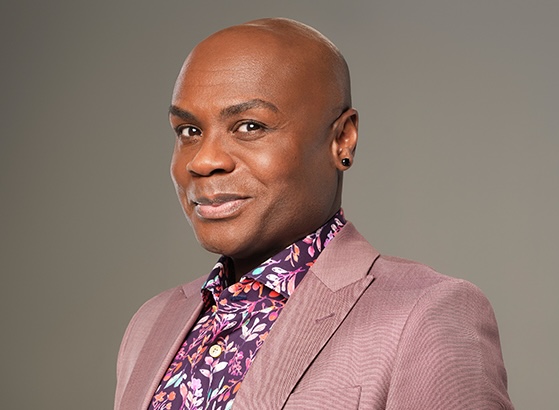‘The Fabelmans’ Review: Close Encounters
Steven Spielberg’s poignant cinematic 'The Fabelmans' finds a film-obsessed teen coming of age in a family coming apart.

As minimal in its filmmaking flourishes as we’re likely to see from Steven Spielberg, The Fabelmans (★★★★☆) saves its showiest move until the very end, a playful, graceful parting shot.
In most other regards a restrained period dramedy, the film still feels like an adventure for the 10 billion-dollar-grossing director whom audiences might least associate with heartfelt depictions of suburbanites leading their human-scale, deeply emotional lives.
No aliens, dinosaurs, or street-punks amble in to disturb the Fabelman family, no ark-raiding archaeologists come to their rescue. Yet the story of Sammy Fabelman (impressive newcomer Gabriel LaBelle) falling head over heels for the love of his life — making movies — unfolds with raw tension and suspense.
The suspense doesn’t hang over Sammy’s future. This kid, whatever his insecurities, has an impending date with a mechanical shark, we know. Rather, uncertainty looms with terrible intensity over the cozy but combative relationship between Sammy’s parents, Mitzi and Burt, played with due complexity by Michelle Williams and Paul Dano.
The Fabelmans appear to be a picture-perfect postwar, all-American middle-class Jewish family, a Truman-Eisenhower-era dream of upward mobility. Burt, a WWII vet, works as a computer engineer, while Mitzi, a former concert pianist, takes care of the house and four kids. Their ’50s sitcom-ready dynamic of serious dad and fun mom seems set, but there are complications.
As Burt’s plum positions with RCA, then GE, then IBM keep the family moving up the socio-economic ladder, from New Jersey to Phoenix to Northern California, Mitzi never quite finds her footing. Restless within the confines of their comfortable life, she practically vibrates with frustration and regret.
Her primary positive outlet for that energy is doting on her children, especially oldest Sammy, her only son, into whom she pours her infectious enthusiasm for art and imagination. Spielberg shows us that both Burt and Mitzi take little Sammy (Mateo Zoryon Francis-DeFord) to his first movie, The Greatest Show on Earth. But it’s Mitzi who convinces the apprehensive lad not to fear hanging out in the dark, but to submit to the dream.
That trip to the cinema sparks in Sammy an undying love that Mitzi nurtures fiercely. Burt supports the kid’s moviemaking endeavors only up to a point, dismissing Sammy’s growing obsession as just a hobby.

The script, by Spielberg and frequent collaborator Tony Kushner, doesn’t make Burt the bad guy, but he’s a constant buzzkill, especially compared to Mitzi’s rays of sunshine. And, again, we know very well where Sammy’s hobby will take him, so Burt is saddled with being monumentally off in his calculations of whether the boy is wasting his time.
Despite having those cards stacked against him, Dano turns in a sympathetic portrayal of a dutiful patriarch, also frustrated but far more introverted, and clearly unable to address the malaise gnawing away at his marriage.
Mitzi is more demonstrative of her unease, as well as her joy, and Williams is riveting to watch swinging wildly across that spectrum of moods. Cinematographer Janusz Kaminski, another frequent Spielberg collaborator, often confines Mitzi’s outbursts to closeups exuding all that uncontainable, painfully vulnerable emotion. Spielberg allows the lived-in performances to be the special effect.
That includes LaBelle’s breakout turn as teenage Sammy, who, with the benefit of colored contacts, definitely resembles a young Steven Spielberg. The character would seem to represent the filmmaker’s best self, in that he’s kind, decent, caring, confident, funny, and a hit with the ladies.

Although, LaBelle really hits the target depicting Sammy’s darker moments, as in a gripping sequence of Sammy feverishly analyzing home movies Zapruder-style to uncover a devastating family secret. The scene reveals a side of Spielberg we’ve rarely if ever seen, deeply personal, compulsive, controlling, and LaBelle draws us into the moment completely.
The film is less successful when it lightens up — that is, save for Seth Rogen’s remarkably genuine performance as family friend Uncle Bennie and Jeannie Berlin’s acidly funny turn as the Fabelman grandma.
The Fabelmans otherwise finds comedy in an entire act of the film chronicling Sammy’s high school years in NoCal, where he first confronted virulent antisemitism and bullying.
Not exactly a laughing matter, the bigotry feels unfortunately timely in 2022, though the bullies themselves are played mostly for cheap laughs. As is Sammy’s first girlfriend, a literal Jesus freak determined to get him to accept Christ as his savior, after they make out.
The bullies get their comeuppance, of course, in a turn of events so wed to Spielbergian formula, including the John Williams score, as to feel like self-parody. It’s a jarring dose of Hollywood make-believe within a soul-baring memoir that at its best cuts straight to the heart.
The Fabelmans is playing at theaters everywhere, including Landmark’s E Street and Bethesda Row Cinemas. Visit www.landmarktheatres.com or www.fandango.com.
Support Metro Weekly’s Journalism
These are challenging times for news organizations. And yet it’s crucial we stay active and provide vital resources and information to both our local readers and the world. So won’t you please take a moment and consider supporting Metro Weekly with a membership? For as little as $5 a month, you can help ensure Metro Weekly magazine and MetroWeekly.com remain free, viable resources as we provide the best, most diverse, culturally-resonant LGBTQ coverage in both the D.C. region and around the world. Memberships come with exclusive perks and discounts, your own personal digital delivery of each week’s magazine (and an archive), access to our Member's Lounge when it launches this fall, and exclusive members-only items like Metro Weekly Membership Mugs and Tote Bags! Check out all our membership levels here and please join us today!

























You must be logged in to post a comment.